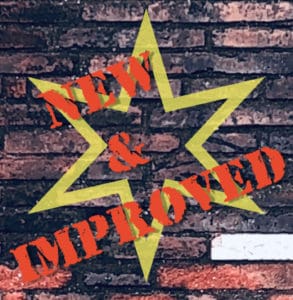 Samuel Westrich, Head of Mobile Team at Dash Core Group, an organization focused on the development of Dash (DASH), a widely-adopted digital currency platform and ecosystem, reveals that he’s been active in Dash’s ongoing development since 2015.
Samuel Westrich, Head of Mobile Team at Dash Core Group, an organization focused on the development of Dash (DASH), a widely-adopted digital currency platform and ecosystem, reveals that he’s been active in Dash’s ongoing development since 2015.
Westrich notes that his team is getting closer to introducing the Dash Platform and updating its digital wallets to support the DashPay contract and associated specification. He added that he’s planning to provide more updates on these developments in the coming months.
Westrich confirmed that his team is releasing 4 new Dash Improvement Proposals (DIPs) related to or surrounding DashPay. He pointed out that the Dash Platform is a byzantine fault tolerant system that “provides state replication.”
He explained that a byzantine fault tolerant system is essentially a network where computing nodes may go offline or “even lie and yet the system will still work.” He added that the platform uses “practical” byzantine fault tolerance (pBFT) in order to achieve this, meanwhile, Core uses the Nakamoto Consensus. He further noted that “the interplay” of Nakamoto Consensus and Byzantine Fault Tolerance is what helps with achieving consensus on the blockchain.
In Dash Core, the validity of data or information is “based on transactions being included in blocks and the fact that these blocks were mined,” Westrich explained. For instance, in Dash Core if you’ve got a Coinbase transaction ‘A’ that “comes from mining a block and then a mined transaction ‘B’ that uses ‘A’ as an input, the validity of ‘B’ comes from the fact that ‘A’ was valid and there is a proof that the ‘owner’ of ‘A’ is spending the amount with the transaction ‘B’,” Westrich noted.
On the Dash Platform, the “current state of information can be proved with a merkleized binary state tree.” As explained by Westrich, the validity of “any [piece of] information is based on what a majority or greater than 2/3rds of the masternode network think it is.” He added that “this means we no longer have to rely on transactional proofs and instead can rely on what we will call threshold state proofs.” He also mentioned that “this, in turn, allows us to do some pretty cool and awesome things” with DashPay “being one of them.”
After sharing many other technical updates, Westrich noted that in the initial or first version of DashPay, “all relationships between contacts are public.” He acknowledged that “this is not completely ideal.” That’s because we may “not want the world to know they are in contact with a certain individual.”
He concluded:
“I certainly think that there will always be value in public contacts, but I also believe that we should follow up this work by figuring out how to allow for private contacts as well. We haven’t spent much time researching these private contacts yet, though I do think that a solution would be non-trivial. Our current goal is to release a version of our software that provides a good step up over the current state of crypto payments and then to continue iteratively adding improvements going forward.”
As reported in September 2020, the Dash developers released updated software which made it easier to test out new features. As covered in July 2020, Dash or digital cash for enabling financial freedom and inclusion received various updates, when platform Version 0.14 launched (but many more upgrades are now live).

